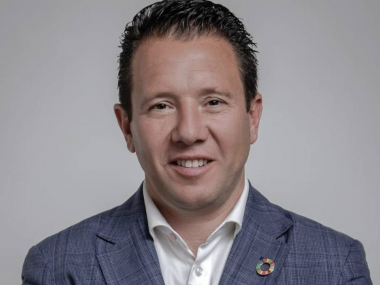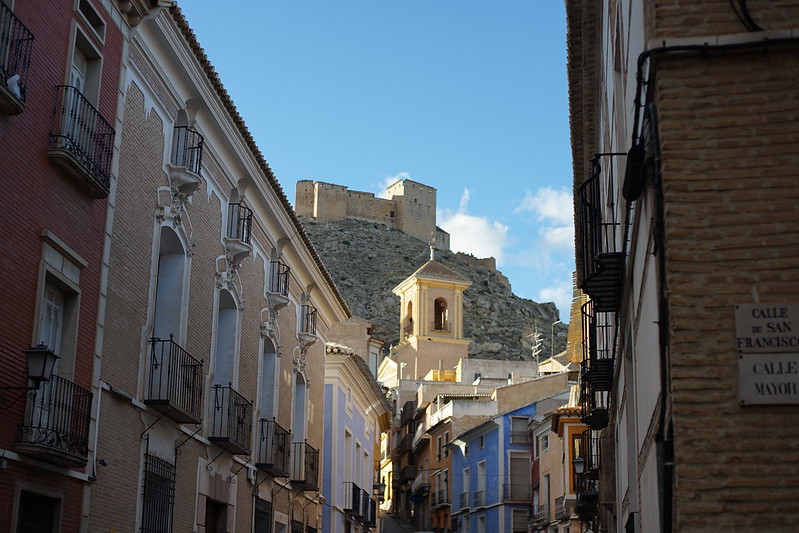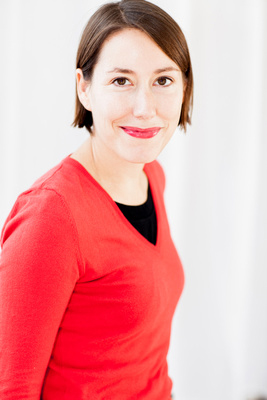Visions from the City Representatives - the KAIRÓS interview series by Lead Expert Miguel Rivas
Edited on
08 February 2022Heritage-led urban regeneration involves major urban projects requiring significant investment. Political backing and direction are therefore key to attract resources and align necessary contributors and stakeholders. This is a series of short interviews conducted by KAIRÓS lead expert and TASO principal Miguel Rivas to Mayors and elected representatives from the URBACT network KAIRÓS Heritage as Urban Regeneration.
In the first interview Miguel Rivas talked to Juan J. Moreno, the Mayor of Mula (ES).

Miguel Rivas: Dear Mayor, it is a great pleasure talking to you again. The town of Mula is the lead partner of the Kairós network. Why did you take the initiative to promote a network like Kairós? What is the challenge you are facing in the field of heritage-led urban regeneration?
Juan J. Moreno: Thank you Miguel. Already in the course of the previous legislature, the local government was planning the urban regeneration of Mula’s historic Upper Quarters (that we called in Spanish Barrios Altos), dating back to medieval times. We, from the City Council, are acutely aware of the problems and the degree of dereliction that are affecting a number of specific areas in those neigbourhoods, despite the efforts over the past years to increase resources and public services in these areas. We definitely wanted a new approach. And we thought the URBACT Programme was the right framework to achieve that. Moreover, it was a great opportunity for us to learn and share knowledge and practices with other European cities facing the same type of problems than Mula.
Miguel Rivas: As an experienced URBACT lead expert, I must tell you how impressed I have been to see your personal involvement in the launch and development of the Kairós project in Mula. How do you see your role as mayor and that of other elected representatives in an urban regeneration process?
Juan J. Moreno: In the end governance is key to the progress of this kind of complex projects, which need from different municipal departments and stakeholders. As Mayor, I see myself as a main facilitator of this. Fundraising is another key aspect in urban regeneration, which is an issue in Spain where the financial capacity of local governments is weak, in particular that of small and mediums-sized towns. In this regard, the capability of local governments to involve and create synergies with the regional/national administration and other public and private institutions makes a difference. I am personally devoting a special effort on this matter.
Miguel Rivas: The URBACT method is about making the integrated approach work, which is a real organisational challenge. What will you try at Mula Town Council to adopt an integrated approach to revert dereliction that is affecting the historic “upper quarters” of Mula?
Juan J. Moreno: We have made available all Municipality´s resources with the aim of halting the dereliction process in the historic Upper Quarters. I here refer to material, human and economic resources without obviating the social aspects. We have achieved the collaboration of the Polytechnic University of Cartagena (UPCT) to carry out an in-depth urban analysis of the target area, which will then result into an Integrated Action Plan. Also, in the context of URBACT-Kairós project, we have created a multi-stakeholder group to support the regeneration process that we are promoting.
Miguel Rivas: In the Summer of 2020, you took the initiative to introduce personally the Kairós ambition to Murcia´s Regional Authorities. Did you get any concrete commitment from the Region of Murcia in order to support Mula´s Integrated Action Plan as a result of the Kairós project?
Juan J.Moreno: As mentioned earlier, funding is key to any relevant project on urban regeneration. We cannot get success without mobilizing the financial capacity to act from our own Regional Government, which is significant, and that of the State level too, if possible. Furthermore, we think the innovative integrated approach that we are building up in Kairós can be replicated to other heritage-led urban regeneration projects in the region. We this in mind, as you say, we presented the Kairós ambition to the Directorate General of Strategies of the Regional Government (CARM in acronym), and we got a very positive response in the sense of considering Mula´s project at the regional Operational Programme of the upcoming EU programming period 2021-2027.
Miguel Rivas: COVID-19 pandemic is hitting Spain and Murcia region hardly, as in many places in Europe. How is the situation running in your town? How do you see the impact over local economies in the medium term? And the impact on the urban regeneration project that you are promoting?
Juan J. Moreno: This crisis has swept us all from our course and obviously is affecting all Spain. As for Mula, the population has become involved and is complying with the established sanitary recommendations. Obviously, the measures adopted are causing an unprecedented economic and social damage, but the City Council is adamant in not leaving anybody behind and to provide maximum assistance to families, businesses and self-employees, in particular the hospitality sector that is most hit. Nonetheless, the recovery period can be a precious opportunity for us to boost the urban regeneration of Mula´s historic upper quarters, given its condition as a transformative project, well-aligned to sustainable models. I mean the recovery and resilience plan the Government of Spain is drafting to be funded by the new EU temporary facility NewGenerationEU. And think this EU financial instrument will allocate 140 billion Euros only to Spain! That massive recovery plan will need from the concourse of the regions and cities - those with capacity enough to draft good transformative projects, and I guess cultural heritage-led urban regeneration suits well to this spirit.

 Submitted by Dorothee Fischer on
Submitted by Dorothee Fischer on
